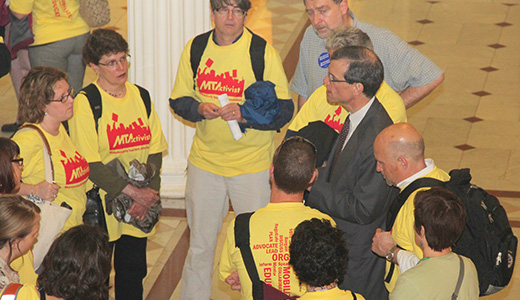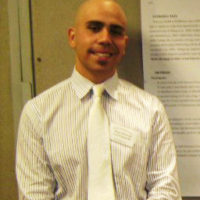
The national debate about the collective bargaining rights of unions, which began in the Midwest, has taken a surprising twist. In a 111-42 vote on April 26, the overwhelmingly Democratic Massachusetts state House passed a bill that would limit the right of public employees to collectively bargain for their health care. The debate to divest police, firefighters, teachers, and other public workers of their ability to collectively bargain for their health care benefits now turns to the Senate, where President Therese Murray has indicated some reluctance to take up such a contentious issue.
Union employees and leaders were incensed by this move, perhaps even more so because it came from historically pro-union Democrats. “Pretty stunning” was how the president of the Massachusetts AFL-CIO, Robert Haynes, described the legislation to the Boston Globe. He added: “These are the same Democrats that all these labor unions elected. The same Democrats who we contributed to in their campaigns. The same Democrats who tell us over and over again that they’re with us, that they believe in collective bargaining, that they believe in unions. … It’s a done deal for our relationship with the people inside that chamber.” In a statement on the federation’s website Haynes declared, “Working people need to know who is for our right to collectively bargain and who is not.”
A union activist who works in the state university system noted that, in this traditionally Democratic state, “there are some pretty conservative Democrats in the legislature who would be Republicans in other states.”
He said, “For quite a while, there has been a big push to force all municipal workers (of whom teachers are the largest part) into the Group Insurance Commission system, basically taking away their right to bargain health insurance collectively.” State workers are already in the GIC and are prohibited by law from bargaining health insurance. “Teachers and other municipal workers have resisted this push very strongly,” he said.
The unions have fought intensely against the passage of the new bill, taking out radio ads decrying the move, and threatening the legislators that they will lose union backing if they vote for the rights-limiting legislation. “We are going to fight this thing to the bitter end,” Haynes added. “Massachusetts is not the place that takes collective bargaining away from public employees.”
Democratic House Leader Robert DeLeo offered concessions in an effort to shore up support from wary legislators. One would grant public employees up to 30 days to address any changes in health care with their local officials to prevent the officials from acting without input from union members. However, at the end of that period, the officials would still be able to enact any changes unilaterally.
The other would have municipalities refund to employees up to 20 percent of any savings achieved from the imposed changes, instead of the 10 percent specified in the original plan.
Even so, the bill still met fierce union opposition, not surprising in a state that has long supported workers’ rights. Some Democrats also opposed the measure, likening DeLeo to Wisconsin Gov. Scott Walker. Democratic state Rep. Denise Provost, who opposed the bill, told the Boston Globe, “In the bigger world out there, this fits into a very bad movement to disempower labor unions.”
DeLeo has said, according to the Globe, that the bill would save $100 million for Massachusetts cities, avoiding layoffs and reductions in services. “By spending less on the health care costs of municipal employees, our cities and towns will be able to retain jobs and allot more funding to necessary services like education and public safety,” he stated.
One public school teacher called this approach “blatant scapegoating of public workers for the hardships faced by the general public.” She added, “It fails to address the real issues that have led to the situation (rising health care costs in general as well as repeated tax cuts back during the Mitt Romney administration).”
Massachusetts, however, has not been the only Democratic-controlled state that has turned to balancing budgets in ways that have left their progressive supporters baffled.
California Gov. Jerry Brown has proposed slashes in education, slashing 10 percent from salaries of unionized employees, and dramatically reducing health and disability programs. Others say raising taxes by 10 percent on the state’s richest citizens could practically eliminate its $25 billion deficit.
New York Gov. Andrew Cuomo has called for almost 10,000 layoffs and big cuts to education and health care. Critics point out that there are 58 billionaires in New York City who are so rich that, if taxed efficiently, they could drastically cut the state deficit without hurting their bank statements much at all.
Connecticut Gov. Daniel Malloy has proposed closing budget shortfalls based on over $1 billion in union concessions. If the unions refuse, he has threatened to dramatically cut city funding.
As for Massachusetts, it is unlikely that the House bill will make it to the governor’s desk in its current form. State Senate President Murray has said she believes workers should have some say in their health care benefits, and Gov. Deval Patrick has suggested much more modest measures than were advanced by the House. “I am not going to sign a Wisconsin-type bill in the end,” Patrick told the Boston Globe’s Michael Levenson.
Susan Webb contributed to this article.
Photo: Members of the Cambridge, Mass., Teachers Association talk with state Rep. Will Brownsberger about collective bargaining during Educator Lobby Day, April 26 at the state Capitol on Beacon Hill in Boston. Massachusetts Education Association/Flickr












Comments